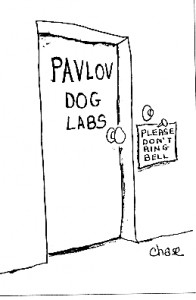Knowledge Is Power. . . NOT!
https://savethemarriage.com/stmblog/wp-content/themes/corpus/images/empty/thumbnail.jpg 150 150 Lee H. Baucom, Ph.D. Lee H. Baucom, Ph.D. https://secure.gravatar.com/avatar/669b7e375d93f77521ddaba08adb8063?s=96&d=blank&r=pg Have you heard that before? Knowledge is power? Trust me, after spending over 9 years, post college, in graduate school, I believe that information has power.
Have you heard that before? Knowledge is power? Trust me, after spending over 9 years, post college, in graduate school, I believe that information has power.
Problem is, too many people forget one thing: knowledge that is not applied is useless. Knowledge is NOT power. Applied knowledge, THAT is power!
On a daily basis, I hear from people who want to save their marriage. Just this morning, a gentleman asked me for “a few pointers” to save his marriage. I referred him to my Save The Marriage System. But I get the feeling that he just wanted a couple of points.
He wanted the “magic knowledge.” And that is what sometimes worries me. Are you ready to take action? Or have you been seduced by society’s obsession with “the easy answer.” Most easy answers are not even answers. But more than that, how many people even apply them?
All I have to do is look at my bookcase at all the “information” available to me. Wow! I have a solution for many problems. . . and they would probably work — if I applied the information!
My point is, sometimes we get so caught up in chasing information that we never take the next step — action.
Are you wanting to save your marriage? Stop a divorce? Improve your relationship?
Do yourself a favor: once you have some information you trust, spend some time implementing and trying it out. Don’t keep looking for more information. Try it out!
About 6 months ago, I got serious about really getting into shape. I found some information I trusted. And I applied it. Want to know what happened? I lost weight, got fit, and am now in the best shape of my life.
Several people asked me what I did. I told them. Some even got the book. One joked “I read it and nothing happened. Do you mean I have to do something different?”
Indeed, knowledge is NOT power. Applied knowledge, THAT is power! Get the information you need, then take action! A new year and new life awaits you!
Ready to change your life and your marriage? Grab this information and save your marriage!
“We cannot solve our problems with the same thinking we used when we created them.”
–Albert Einstein

